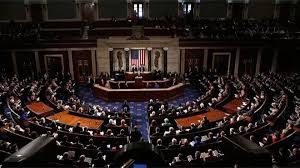Syria Between Aggression and Stability: Will the New American Efforts Succeed?

Just days after a historic decision to lift U.S. sanctions on Syria, the statement from the three members reflects a different vision for dealing with the Syrian file. This is not just a call for a ceasefire, but an implicit acknowledgment that the stability of Syria has become a regional and international necessity.
The recent Israeli airstrikes on the outskirts of Damascus, which resulted in the deaths of six Syrian soldiers, are no longer passing unnoticed as they used to. The joint statement describes these attacks as "destabilizing," clearly indicating that their continuation hinders the peace opportunities that began to take shape after the sanctions were lifted.
But the question arises: Does Washington really have the desire and ability to deter its Israeli ally from continuing its aggression?
The Syrian government, which took power after the fall of the Assad regime, seems eager to establish the foundations of stability. The statements of Syrian Foreign Minister Asaad al-Shabani regarding Damascus's lack of desire for war with Israel, and his emphasis on the necessity of implementing the 1974 separation of forces agreement, reflect a clear intention to turn the page.
In the background, a new reality is beginning to take shape. The lifting of U.S. sanctions, calls to stop Israeli aggression, and international efforts for reconstruction are all elements indicating that the international community is beginning to realize that the continuation of Syrian suffering is no longer acceptable.
However, the road to stability is still fraught with challenges. While Syria attempts to rise from the rubble of war, the continuation of Israeli aggression poses a direct threat to any potential progress. The American statement came at the right time, but it still needs practical steps to translate words into actions.
The political game in Syria is entering a new phase, where the arena is no longer just a field for proxy conflicts, but has become a testing ground for the will of the international community to achieve peace. Success in this difficult equation requires more than media statements; it requires genuine political will capable of imposing stability in a region that has long suffered from the ravages of war.